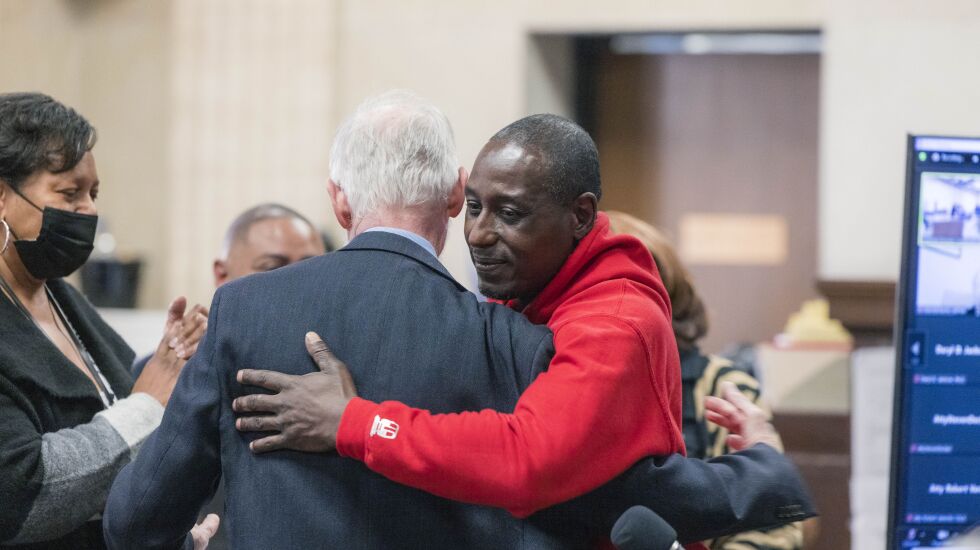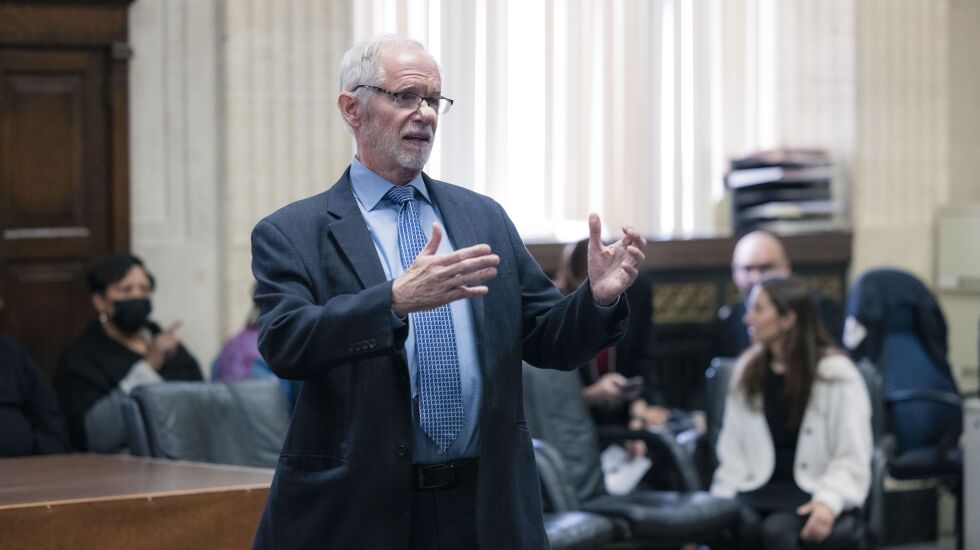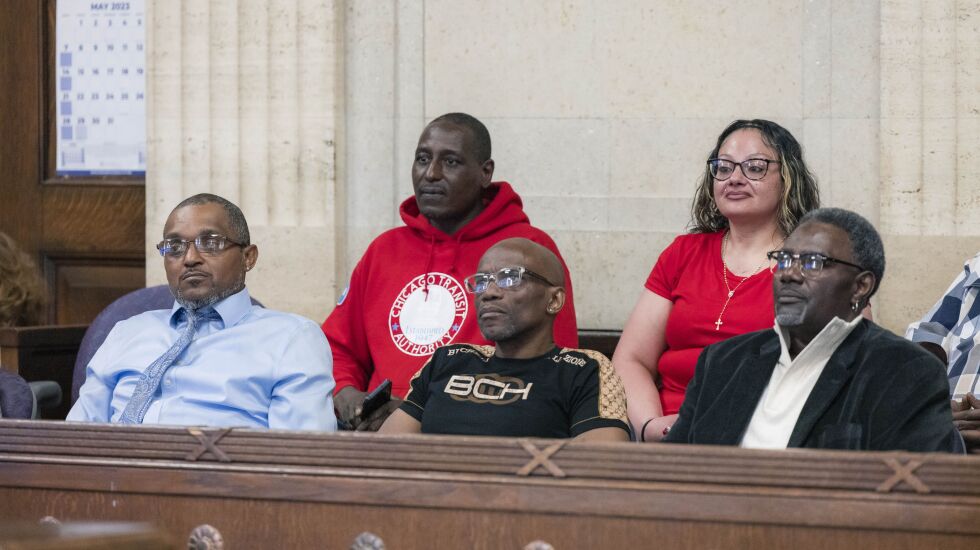
Three years later, the 51-year-old heroin user, who says he was dealing drugs to feed his habit, hugged Cook County Judge Charles Burns in the courthouse at 26th Street and California Avenue.
Burnett was one of nine men and a woman who have just graduated from the judge’s drug court, a tough-love program in which about half of the participants typically fail but the rest go through substance-abuse treatment, are set up with housing if they’re homeless and receive help getting a job.
At a ceremony Thursday, Burns, who has presided over the drug court for 13 years, did something new: He began the process to expunge the criminal records of all 10 participants.
In the past, his graduates had to apply for expungement, like anyone else — and then wait at least a year for their convictions to be stricken from the court record. But Burns persuaded Chief Cook County Judge Timothy Evans and Erica Reddick, presiding judge of the criminal courts, to give him special authority to speed the process.
“Sixty days from now, your records will be expunged,” Burns told the graduates to cheers and applause from family members and caseworkers who attended the ceremony in cavernous Courtroom 402, with its marble pilasters and dark-wood paneling.
Burnett said that, for him, getting his record expunged was a “miracle.”
He wore a red Chicago Transit Authority hooded sweatshirt to show how far he’s come.
Through the nationally acclaimed program, called the Rehabilitative Alternative Probation program, or (W)RAP, Burnett said he got a job as a janitor at Safe Haven, a social services agency that provides shelter to homeless people.
Later, he got an apartment in Dolton and a job as a trainee in a “second-chance” program with the CTA, where, at first, he cleaned buses. Now, he has a commercial driver’s license and is training to become a bus driver, a job he hopes to start this summer.
“I hope to be an inspiration to others who may be struggling,” Burnett said.

For people struggling with addiction, fentanyl — commonly mixed with heroin and other drugs in recent years — is particularly lethal. At the beginning of the year, the Cook County medical examiner’s office said there had been at least 1,600 opioid overdose deaths countywide in 2022.
Since 2018, more than 100 people, most who have substance-abuse problems, have graduated from the (W)RAP program. Its goal is to stop the cycle of overdose deaths and incarceration and help participants find ways to lead productive lives.
From 2014 through January 2022, only 3.8% of (W)RAP graduates were charged with new felonies within a year of finishing the program. Within three years, that figure rose to 9.6% and to 10.4% after five years, according to Burns’ office.
To make things less stuffy during the “graduation” at the courthouse, the judge decided not to wear his black judge’s robe — just a suit and comfortable shoes.
“Welcome to one of the best days of the year,” Burns told the participants. “Because we made mistakes in the past, they should not define us.”
Each graduate was handed a certificate and a backpack filled with “swag,” as Burns described it.
The backpacks also contained something more important: a business card with the judge’s cellphone number.
“Call me anytime,” he told the graduates. “Say hello. Check in. Or call if you need additional help.”
He also invited them to come to an “alumni meeting” — a support group of fellow graduates, in the coming week.

Most of them, like Burnett, are older than 50 and had been caught, some repeatedly, selling small amounts of narcotics, which is a felony in Illinois no matter the amount. All had substance-abuse problems.
Marcus Ford, 56, told everyone in the packed courtroom he’s been sober for two years, one month and 11 days and now works 12-hour shifts at Hostess, making snack foods.
Ford talked about all the times he used to go “out the back door” from the courthouse to jail.
“Now, I’m going out the front door,” he said.

Roosevelt Carter, 52, who was caught in 2021 on the West Side selling a pink Ziploc baggie of crack cocaine to an undercover Chicago cop for $20, said he was proud of his turnaround.
“For a guy who’s seen death eight or nine times, this is a real blessing,” Carter said. “I showed my father, before he passed away, that I was on the right path.”







